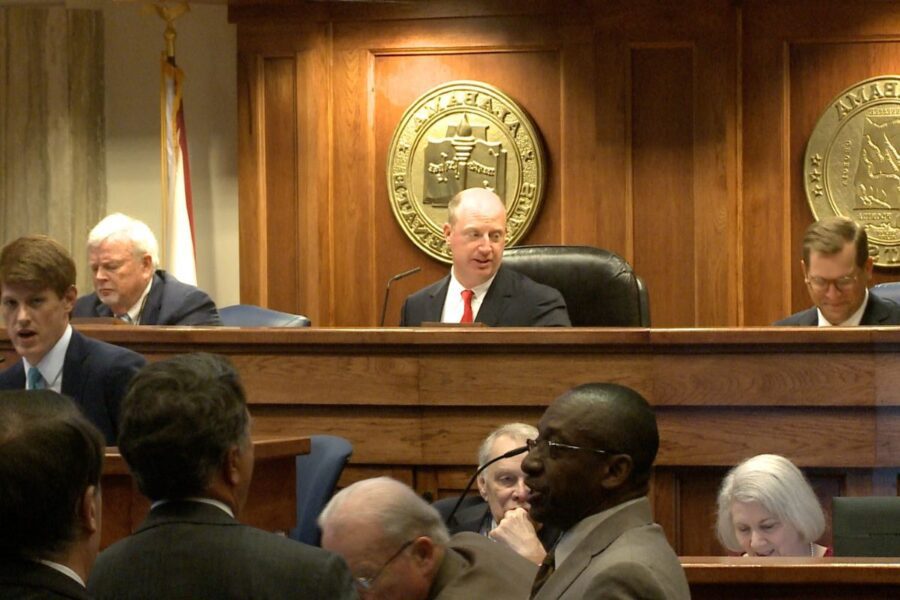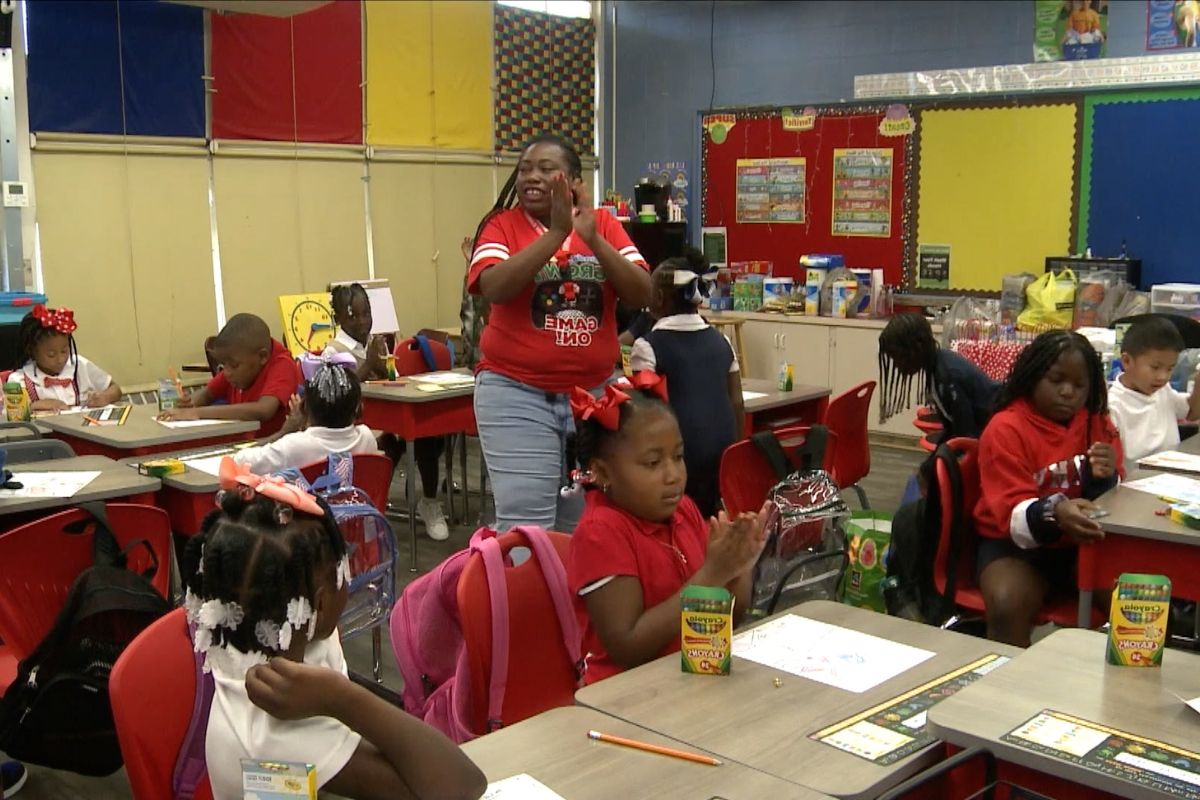State House Rally School Choice Debate: The recent State House rally has ignited a fierce debate surrounding school choice, with proponents advocating for increased options and opponents raising concerns over potential consequences.
As tensions escalate, the discourse into fundamental questions about the future of education and the principles that underpin it.
The clash between those championing choice as a means of empowerment and those warning of detrimental effects on public education has reached a critical juncture, prompting legislators to carefully weigh the implications of proposed policies.
This unfolding controversy promises to shape the educational landscape in profound ways, leaving stakeholders on all sides eagerly anticipating the resolution.
Key Takeaways
- School choice advocates push for expanded options empowering parents.
- Critics raise concerns about equity, resource drain, and accountability.
- Debate intensifies over impacts on public education funding and inclusivity.
- Accountability challenges in private schools highlight oversight and transparency issues.
School Choice Advocates Rally at State House
The State House witnessed a fervent gathering of school choice advocates rallying for the passage of crucial legislation aimed at expanding educational options for parents and students. Proponents of school choice converged to emphasize the importance of empowering parents with the ability to select the most suitable educational environment for their children. The rally served as a platform to highlight the benefits of school choice, including increased competition among schools leading to improved academic performance, personalized learning experiences, and the opportunity for students to thrive in environments that best cater to their individual needs.
Advocates articulated that school choice is not only about providing alternatives to traditional public schools but also about fostering innovation and diversity in the education sector. They stressed that by offering a variety of schooling options such as charter schools, private schools, homeschooling, and virtual learning, parents can tailor their children’s education to match their unique learning styles and aspirations. The passionate advocacy displayed at the State House rally underscored the commitment of supporters to champion policies that prioritize parental choice and student success.
Opposition to School Choice Emerges
Emerging as a significant counterforce to the fervent advocacy for school choice at the State House rally, opposition voices are voicing concerns regarding the allocation of public funds to private educational institutions. Critics argue that while they support the concept of choice, they are against using public money to fund private educational institutions.
The opposition to school choice is gaining momentum due to the following reasons:
- Equity Concerns: Opponents fear that redirecting public funds to private schools may widen the educational equity gap.
- Accountability Issues: Critics raise questions about the accountability of private institutions in terms of academic standards and financial transparency.
- Resource Drain: Some argue that diverting funds to private schools could deplete resources available for public schools, potentially harming the quality of education in the public sector.
- Segregation Risks: There are worries that school choice policies could lead to increased segregation along socioeconomic and racial lines, exacerbating existing inequalities in the education system.
These concerns highlight the complex debate surrounding school choice and the need for careful consideration of its implications.
Attack on Public Education
With the spotlight on the contentious debate over school choice, the scrutiny intensifies as concerns mount over the perceived encroachment on public education funding. Alabama Former State Senator Hank Sanders, a prominent critic of the proposed school choice bill, argues that diverting public funds to private schools poses a significant threat to the integrity of public education.
Sanders emphasizes the vital role public funds play in supporting and sustaining the operations of public schools, making them accessible to all students regardless of background or economic status. The allocation of resources to private institutions, in his view, undermines the fundamental principles of equity and inclusivity that underpin the public education system.
This attack on public education, as articulated by Sanders and echoed by other opponents of the school choice initiative, raises profound concerns about the potential consequences of siphoning resources away from public schools and redirecting them towards private alternatives. The debate surrounding school choice thus intensifies as stakeholders grapple with the implications of this perceived assault on the public education sector.

ALSO READ: Education Budget Chair in Alabama Senate Contemplates Cap on Voucher-Education Bill
Lack of Accountability in School Choice
Amid the debate surrounding school choice, the concern over accountability emerges as a pivotal issue raised by opponents like Selma School Superintendent Dr. Zickeyous Byrd. Public schools are held accountable to state-mandated standards for education, teacher qualifications, and graduation rates. In contrast, the lack of similar requirements for private schools participating in school choice programs raises significant concerns about maintaining educational standards and ensuring transparency in the use of public funds.
Private schools receiving public funds may not be required to follow the same curriculum standards as public schools.
There is a lack of oversight to guarantee that private schools are providing quality education to students.
Without standardized testing or reporting requirements, it becomes challenging to assess the academic performance and progress of students in private schools.
Concerns arise regarding the equitable distribution of resources and the potential for discrimination in admissions or treatment of students.
Legislative Consideration of School Choice Bill
The upcoming deliberation in the Alabama state legislature on a school choice bill has sparked a contentious debate regarding the balance between expanding parental options in education and maintaining accountability and standards across public and private schools.
As legislators prepare to discuss this significant piece of legislation, both proponents and opponents are gearing up to present their arguments. Proponents argue that school choice empowers parents by allowing them to select the educational environment that best suits their child’s needs, potentially leading to improved academic outcomes.
On the other hand, opponents raise concerns about the potential lack of oversight and accountability in privately-run schools that receive public funding through such initiatives. They emphasize the importance of ensuring that all educational institutions adhere to rigorous standards to guarantee a quality education for all students.
The forthcoming legislative debates promise these complex issues, weighing the benefits of expanded choice against the necessity of upholding educational standards and accountability measures.
Conclusion Of State House Rally School Choice Debate
The state house rally for school choice sparked a heated debate between advocates and opponents.
The opposition raised concerns about the impact on public education and the lack of accountability in school choice programs.
As the legislative consideration of the school choice bill continues, it is clear that this issue will be a contentious and complex one that requires careful examination and deliberation.

